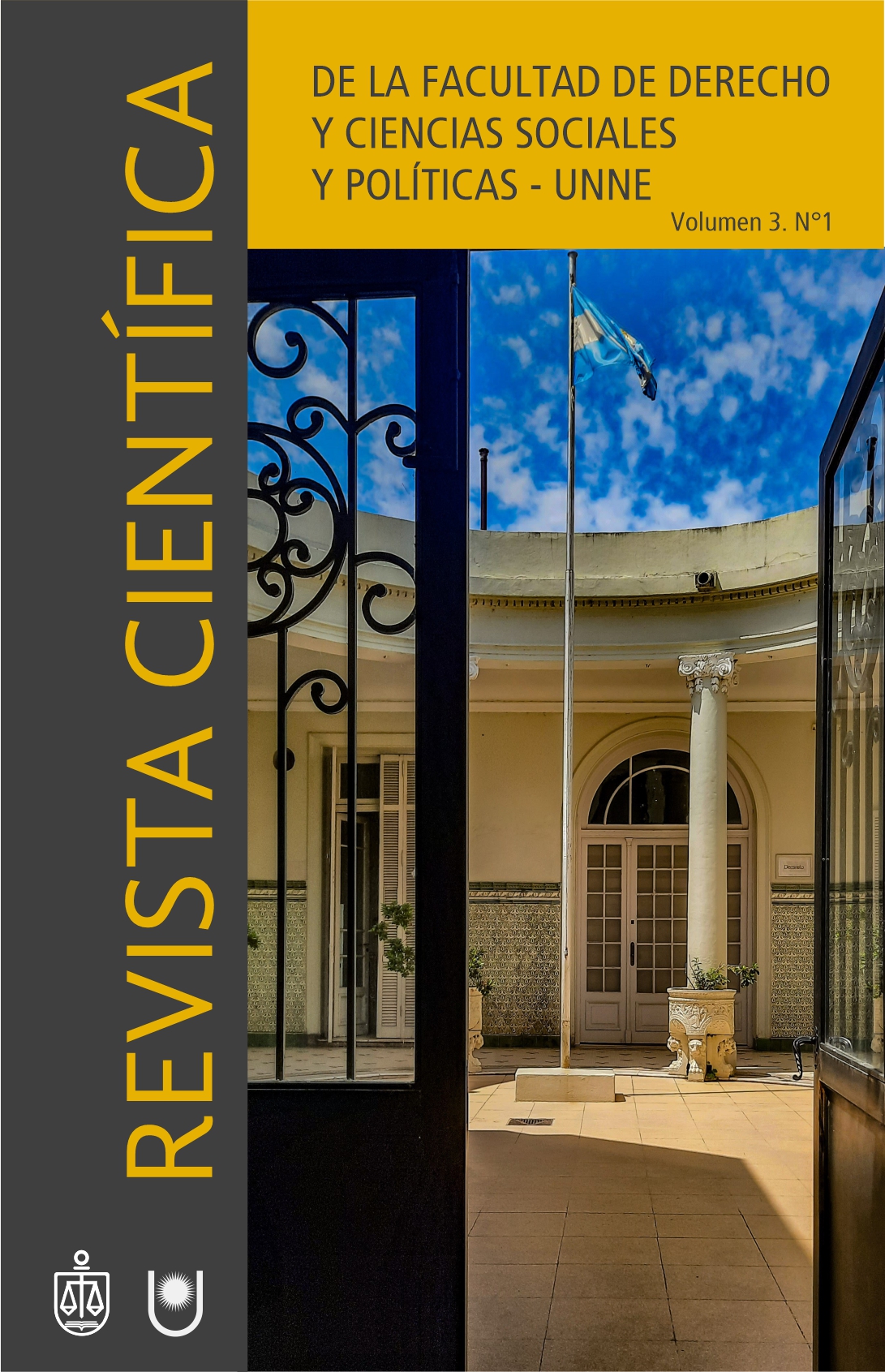Citizenship and climate change
DOI:
https://doi.org/10.30972/rcd.317340Keywords:
citizenship, climate change, pro-ecological behavioursAbstract
This article analyzes the relationship between citizenship and climate change by three closely linked dimensions: environmental civic duties, which include pro-ecological behaviors; its implications for human rights and climate litigation. We began our analysis from a series of epistemological considerations that climate change entails for the institution of citizenship. The objective of this scientific paper is to make an interrelation between the theory about the issue of climate change and the doctrinal approaches that have addressed this problem. The methodology is based on the hermeneutics of doctrine and of jurisprudence. The bibliographic and theoretical analysis allows us to infer that the environmental paradigm leads to re-signify the traditional concept of citizenship, not only expanding the spectrum of rights, but also implying political responsibilities towards nature and future generations in a global scenario. It has been possible to identify that the tool of climate litigation has proven to be effective for the protection of human rights and for the exercise of environmental civic duties.
References
Backstrand, K. y Lovbrand, E. (2016). The Road to Paris: Contending Climate Governance Discourses in the PostCopenhagen Era. Journal of Environmental Policy & Planning, 21 (5), 519-532.
Barnett, J. (2010). Human rights and vulnerability to climate change. En Humphreys S. (ed.) Human Rights and Climate Change (pp. 257-271). Cambridge University Press.
Beck, U. (1998) ¿Qué es la globalización? Falacias del globalismo, respuestas a la globalización. Ed. Paidós.
Boluarte, K. y Lopez, L. (2021). El cambio climático desde un enfoque del derecho internacional de los derechos humanos. LEX - Revista de la Facultad de Derecho y Ciencias Políticas, 19(28), 105-122.
Brailovsky, A. E. y Foguelman, D. (1991). Memoria Verde: Historia Ecológica de la Argentina. Editorial Sudamericana.
Bueno Rubial, M. (2017). El Acuerdo de París: ¿una nueva idea sobre la arquitectura climática internacional? Relaciones Internacionales, (33), 75–95.
Comisión Económica para América Latina y el Caribe y Alto Comisionado de las Naciones Unidas para los Derechos Humanos (2019). Cambio Climático y Derechos Humanos. Contribuciones desde y para América Latina y el Caribe. CEPAL.
Comisión Nacional de los Derechos Humanos (2017). Derecho Humano al Desarrollo.
D’andrea, D. (2011). El calentamiento global como un riesgo globalizado y una potencial amenaza global”. En: Innerarity, D. y Solana, J. (eds.). La humanidad amenazada: gobernar los riesgos globales (pp. 87-106). Editorial Paidós.
Diéguez, A. (2006). La ciencia desde una perspectiva postmoderna: Entre la legitimidad política y la validez epistemológica. En Conference: II Jornadas de Filosofía: Filosofía y política Volume: II Jornadas de Filosofía: Filosofía y política (pp. 177-205). Procure.
Dobson, A. (2010). Ciudadanía y Medio Ambiente. Editorial Prometeus, Torre de Claramut.
Durán Median, V. y Nalegach Romero, C. (2021). Justicia Climática, construcción de sociedades pacíficas y rendición de cuentas. En: Barcena A., Torres V. y Muñoz Avila L. (eds.) El Acuerdo de Escazú sobre democracia ambiental y su relación con la Agenda 2030 para el Desarrollo Sostenible (Cap. IV, pp.73-95). CEPAL, Universidad del Rosario.
Fayt, C. (2007). Evolución de los Derechos Sociales: del Reconocimiento a la Exigibilidad: el Legado del Siglo XX y los Desafíos del Siglo XXI. La Ley.
Ferro, M (2015). Paradigma ambiental e Institucionalización jurídica. Participación ciudadana y judicialización del conflicto por el saneamiento y la recomposición ambiental de la Cuenca Matanza Riachuelo [Tesis doctoral], Facultad de Derecho, Universidad de Buenos Aires.
Funtowicz, S y Strand, R. (2007). De la demostración experta al diálogo participativo. Revista Iberoamericana de Ciencia, Tecnología y Sociedad CTS, 3 (8), 97-113.
Funtowicz, S. y Ravetz, J. R. (2000). La Ciencia Postnormal. Editorial Icaria.
Funtowicz, S. y Strand, R. (2007). De la demostración experta al diálogo participativo. Revista CTS, 3 (8), 99-100.
Grupo Intergubernamental de Expertos sobre el Cambio Climático. (2019). Calentamiento global de 1,5°C: Resumen para Responsables de Políticas.
Grupo Intergubernamental de Expertos sobre el Cambio Climático. (2022). Summary for Policy makers. En: P.R. Shukla, J. Skea, R. Slade, A. Al Khourdajie, R. van Diemen, D. Mc Collum, M. Pathak, S. Some, P. Vyas, R. Fradera, M. Belkacemi, A. Hasija, G. Lisboa, S. Luz, J. Malley, (eds.): Climate Change 2022: Mitigation of Climate Change. Contribution of Working Group III to the Sixth Assessment Report of the Intergovernmental Panel on Climate Change. Cambridge University Press.
Grupo Intergubernamental de Expertos sobre el Cambio Climático (IPCC). (2021). Summary for Policy makers. In Masson-Delmotte, V., P. Zhai, A. Pirani, S. L. Connors, C. Péan, S. Berger, N. Caud, Y. Chen, L. Goldfarb, M. I. Gomis, M. Huang, K. Leitzell, E. Lonnoy, J. B. R. Matthews, T. K. Maycock, T. Waterfield, O. Yelekçi, R. Yu y B. Zhou (eds.): Climate Change 2021: The Physical Science Basis. Contribution of Working Group I to the Sixth Assessment Report of the Intergovernmental Panel on Climate Change Cambridge University Press.
Grupo Intergubernamental de Expertos sobre el Cambio Climático (IPCC) (2023). Synthesis Report of the Ipcc Sixth Assessment Report (AR6) Summary for Policy makers. IPCC.
Kurt Kiessling, C. (2021). Principio de las Responsabilidades Comunes pero Diferenciadas: un análisis de la internalización de la norma por parte del sector privado en Brasil (2005–2015). Estudios internacionales, 53(198), 63-88.
Lorenzetti, R. (2010). Justicia Colectiva. Buenos Aires: Rubinzal - Culzoni.
Marshall, T. (2007). Ciudadanía y clase social. En Marshall T. H. y Bottomore, Tom. Ciudadanía y clase social. Editorial Losada.
Mercado, C. y Adarme, X. (2010). El enfoque de los derechos humanos en las políticas públicas: ideas para un debate en ciernes. Cuadernos del Cendes 27(74), 51-80.
Nikken, P. (2010). La protección de los derechos humanos: haciendo efectiva la progresividad de los derechos económicos, sociales y culturales. Revista IIDH, 52, 55-140.
Pigretti, E. (2007). Ambiente y sociedad. El bien común planetario. Lajouane.
Van Steenbergen, B. (1994). Towards a Global Ecological Citizen. En: Van Steenbergen B. (ed.). The Condition of Citizenship. (pp. 141-152). Editorial Arrangement.
Varvastian, S. (2021). The Advent of International Human Rights Law in Climate Change Litigation. Wisconsin International Law Journal 38(2), 369-425.
Vives Rego, J. (2013). El Ciudadano Ecológico: Reflexiones Sobre Algunos Contextos Sociales y Elementos Cosmovisionales. Sociología y tecnociencia. 3 (1), 83-104.
Wackernagel, M. y Rees, W. (1996). Our ecological foot print: Reducing human impact on the Earth. New Society Publishers.
Downloads
Published
Versions
- 2024-04-11 (3)
- 2024-02-16 (2)
- 2024-02-06 (1)
How to Cite
Issue
Section
License
Copyright (c) 2024 Research Journal of the Faculty of Law and Social and Political Sciences – UNNE

This work is licensed under a Creative Commons Attribution-NonCommercial 4.0 International License.







52.jpg)






